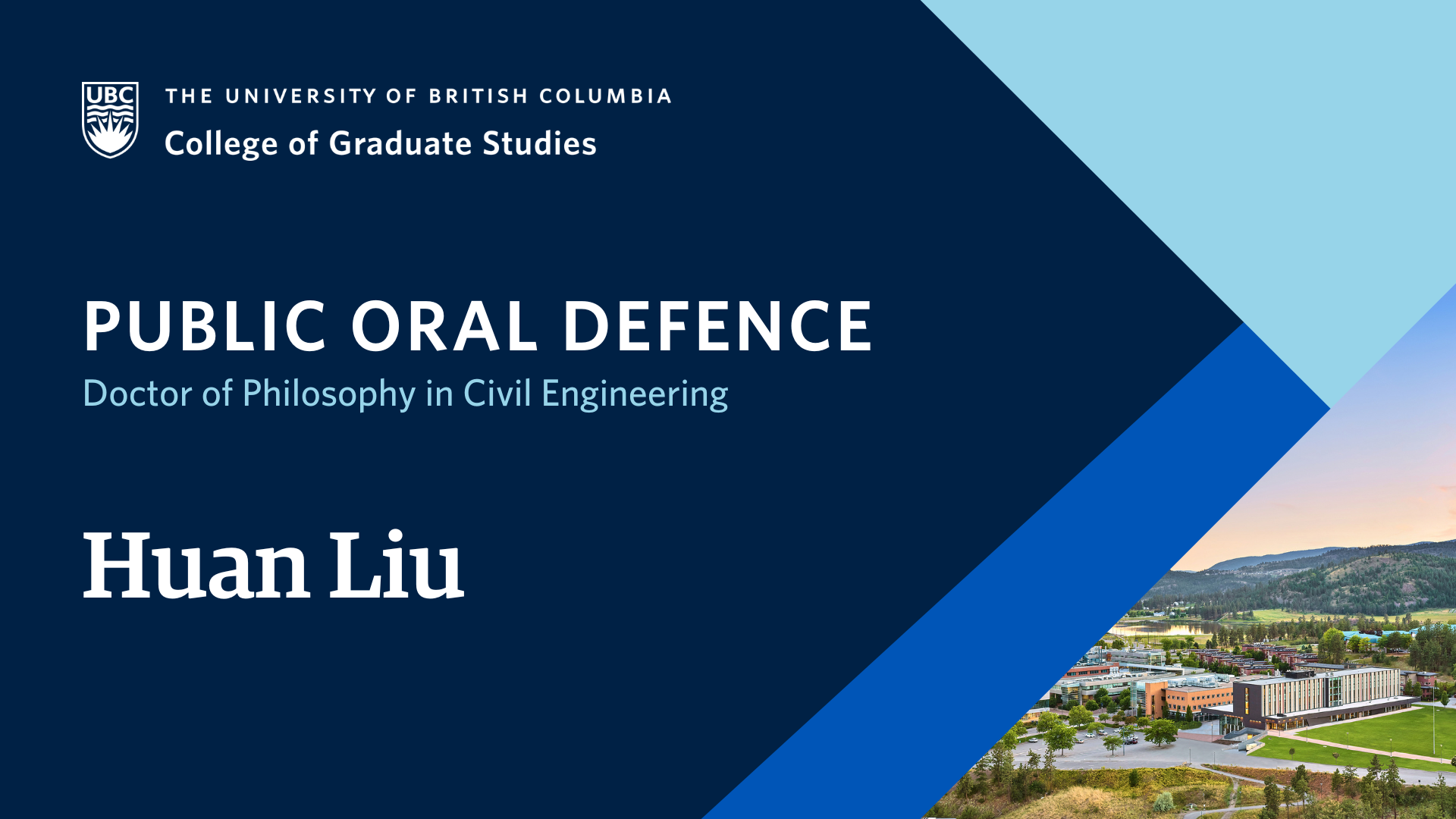
- This event has passed.
Dissertation Defence: Optimization of hydrothermal liquefaction of municipal sludge for biocrude production and valorization approaches for hydrochar stream
October 20, 2023 at 3:00 pm - 7:00 pm

Huan Liu, supervised by Dr. Cigdem Eskicioglu, will defend their dissertation titled “Optimization of hydrothermal liquefaction of municipal sludge for biocrude production and valorization approaches for hydrochar stream” in partial fulfillment of the requirements for the degree of Doctor of Philosophy in Civil Engineering.
An abstract for Huan Liu’s dissertation is included below.
Examinations are open to all members of the campus community as well as the general public. Please email cigdem.eskicioglu@ubc.ca to receive the Zoom link for this defence.
ABSTRACT
Sustainable management of municipal sludge is a vital issue due to its environmental concerns, rising production rates, and stringent regulations. Sludge also contains valuable materials that can be recovered and transformed into resources such as biofuels and nutrients. Hydrothermal liquefaction (HTL) is a promising technology for reducing waste volume and recovering bioenergy and fertilizers from sludge. HTL mimics the natural process of petroleum formation by converting wet biomass into biocrude oil under an elevated temperature (280–374°C) and pressure (8–22 MPa). The biocrude can be refined into value-added products, such as transportation fuels, while the remaining solid residue, hydrochar, can be valorized in various approaches. Therefore, the concept of incorporating HTL process into wastewater treatment plants has been put on the agenda. However, the optimal HTL conditions for energy recovery and the utilization of hydrochar are still unclear. This thesis investigated the effects of HTL operating conditions on the treatment of municipal sludge and developed a pathway for recovering nutrients and valorizing waste.
A response surface methodology was used to optimize HTL operating conditions (reaction temperature and residence time) for municipal sludge and examine their impacts on HTL products. The results showed that both extremely high and low reaction temperatures or residence time had negative effects on biocrude yield and energy recovery, while high reaction severities improved biocrude quality. Under the optimized conditions (332°C for 16.9 min), biocrude yield (49%, dry ash free) and energy recovery (71%) were maximized, while remaining solids were minimized (>95% volume reduction). Carbon, nitrogen, and phosphorus were mainly distributed into HTL biocrude, aqueous phase (wastewater), and hydrochar, respectively, allowing their recovery. The increase in reaction severity also increased ash content and decreased fuel value in hydrochar. The concentrated macro and trace elements in hydrochar created both challenges for management and opportunities for utilization. Hydrochar was found to have a good potential for carbon sequestration and catalytic graphitization but is more promising for phosphorus recovery. Acidic leaching simultaneously recovered most phosphorus from hydrochar and upgraded hydrochar as a potential solid fuel. Phosphorus was precipitated as a multifunctional hydroxyapatite and fertilizer. The findings have significant practical implications in designing a full-scale HTL sludge treatment system combining resource recovery, moving one step closer to wastewater biorefinery.